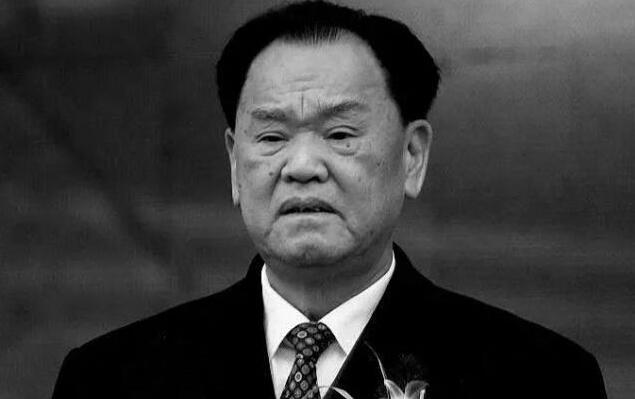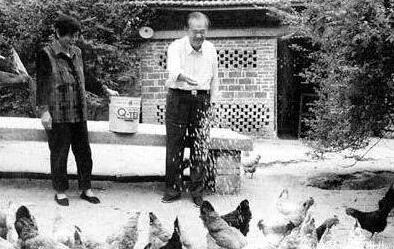According to Xinhua News Agency, the outstanding party members of the Communist Party of China, a loyal communist warrior, the outstanding leaders of the Agricultural and Economic Construction Front, and Mao Zhiyong, deputy chairman of the 9th National Committee of the Chinese People's Political Consultative Conference, was ill in 2019 due to illness.At 14:10 on March 4, he died in Hunan at the age of 90.

Mao Zhishian data diagram
According to public resumes, Mao Zhi was born in November 1929 and joined the Communist Party of China in December 1952.He worked in Yueyang, Hunan, Hunan in his hometown, and served as deputy minister of the Organization Department of the Yueyang County Party Committee, deputy secretary of the Yueyang Earth Committee and secretary of the Yueyang County Party Committee.
Since 1968, Mao Zhi has served as the director of the Yueyang County Revolutionary Committee of Hunan Province and the deputy secretary of the Hunan Provincial Changde District Committee.In 1973, Mao Zhi was appointed as the secretary of the Hunan Provincial Party Committee (at the time with the first secretary).
In 1977, Mao Zhi, who was 48 years old, used the first secretary of the Hunan Provincial Party Committee and worked for 11 years.
In 1988, Mao Zhi was transferred to the Secretary of the Jiangxi Provincial Party Committee. In 1995, Mao Zhi used the post of secretary of the Jiangxi Provincial Party Committee.
Since the transfer of Jiangxi in 1988, Mao Zhi proposed to carry forward the spirit of the old district and revitalize Jiangxi. For 6 consecutive years, major economic indicators such as GDP, total industrial and agricultural output value and fiscal revenue have grown over the national average.Mao Zhi was used in the period of Jiangxi's main administration and was called one of the fastest development in Jiangxi and the biggest change in appearance.
In March 1998, Mao Zhi used the vice chairman of the Ninth National Committee of the Chinese People's Political Consultative Conference and became the deputy national leader.
Political affairs noticed that in early 1992, Deng Xiaoping was very satisfied with the development of Jiangxi when he passed through Nanchang, and then the secretary of the provincial party committee was used.
According to the People's Daily Online, on January 30, 1992, Deng Xiaoping took the special line along the Zhejiang and Gan line to enter Jiangxi from Hunan.At 3:40 pm, the train drove into Yingtan Station slowly.Mao Zhi and Governor Wu Guan, then the secretary of the Jiangxi Provincial Party Committee, was waiting here.
During his work in Hunan, Mao Zhi received Deng Xiaoping, who had received two visits to Hunan, and accompanied him to visit Shaoshan and other places.
According to the Farmers Daily, in March 2003, the National Two Associations ended.Mao Zhiya has also become the only national leader who lives in rural areas after retirement.

Mao Zhiyang after retirement (picture source Xin Hunan)
State leaders went to Hunan to inspect and hear that Mao Zhi was used in rural chicken to raise chickens. He would ask the current situation and give the eggs to the national leaders.The leaders said that this is the egg under the chickens raised by the comrades. It is very precious and must be brought back to Beijing.
After retiring, Mao, who returned to his hometown, still contributed to the development of his hometown, and he personally did it.
Mao Zhiyang not only personally participated in the planning and design of the land and land collation project of the Xichong Village, but also went to the site to supervise the construction.Two enterprise projects were introduced in the town, and the villagers who were requisitioned in the mountains had thoughts and ran to him to reflect the situation.After he understood the truth, he did work patiently. In the end, the two factories did not only solve the employment problem of more than 300 labor, but also gave the villagers a lot of income dividends.With the help of Mao Zhi, Xichong Village has changed from a backward poor village to Yueyang First Village.
According to Xinhua.com, after 8 o'clock every night, it is estimated that Mao Zhi will watch the TV, and the village cadres will come home, talk about the affairs in the village, and listen to his suggestions.
As soon as he heard how to build the village, he was struggling.Mao Changrong, who was a village branch, said that Mao Lao was better in the village.
Mao Zhi used resumes
In November 1929, born in Yueyang, Hunan
In December 1952, joined the Communist Party of China
From 1951 to 1953, he served as the wealth and food assistant, the secretary of the district party committee, and the party training class of the county party committee of Yueyang County, Hunan Province,
From 1953 to 1960, he served as Deputy Minister of the Organization Department of the Yueyang County Party Committee of the Communist Party of China, Secretary of the District Party Committee, and Secretary of the Party Committee of the Communist Party of China
From 1960 to 1966, he served as Deputy Secretary of the Yueyang County Party Committee and Secretary of the Yueyang County Party Committee of the Communist Party of China.
From 1960 to 1966, he served as Deputy Secretary of the Yueyang County Party Committee and Secretary of the Yueyang County Party Committee of the Communist Party of China.
From 1966 to 1968, it was impacted in the Cultural Revolution
From 1968 to 1971, he served as director of the Yueyang County Revolutionary Committee of Hunan Province and Deputy Secretary of the Mayang County Party Committee of the Communist Party of China
From 1971 to 1973, he served as Deputy Secretary of the Changde District Committee of the Communist Party of China, Deputy Director of the Regional Revolutionary Committee, and Deputy Secretary -General of the Provincial Party Committee
From 1973 to 1977, he served as Secretary of the Hunan Provincial Party Committee of the Communist Party of China (the first secretary at the time)
From 1977 to 1988, he served as the First Secretary of the Hunan Provincial Party Committee of the Communist Party of China and director of the Provincial Revolutionary Committee
From 1988 to 1993, he served as Secretary of the Jiangxi Provincial Party Committee of the Communist Party of China
From 1993 to 1995, he served as Secretary of the Jiangxi Provincial Party Committee and Director of the Standing Committee of the Provincial People's Congress
From 1995 to January 1998, the director of the Standing Committee of the Jiangxi Provincial People's Congress
In March 1998, elected vice chairman of the CPPCC National Committee
The eleventh, twelfth, thirteenth, and 14th Central Committee members of the Communist Party of China



